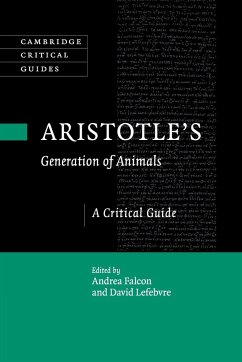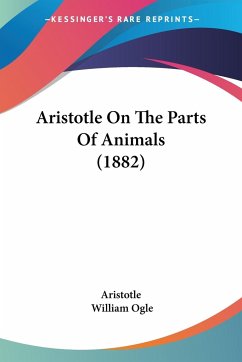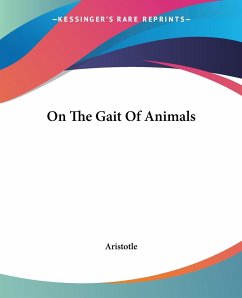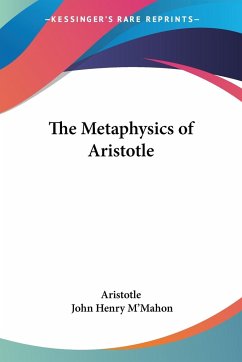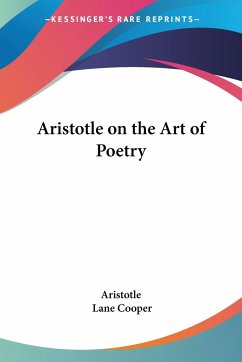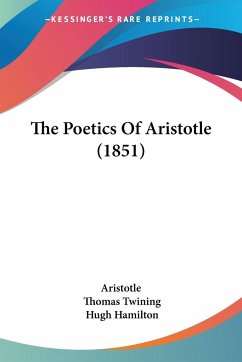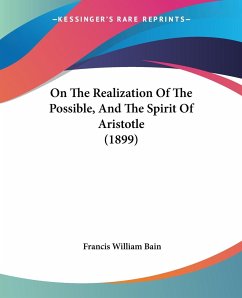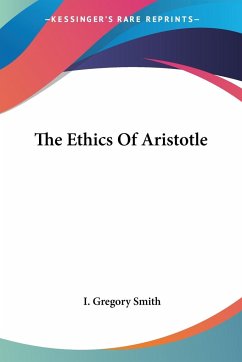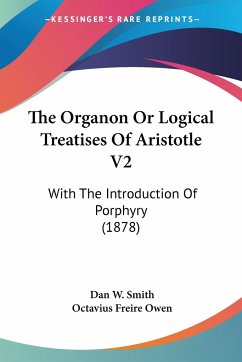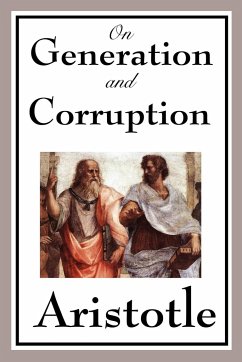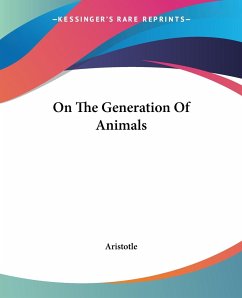
On The Generation Of Animals
Versandkostenfrei!
Versandfertig in 1-2 Wochen
23,99 €
inkl. MwSt.

PAYBACK Punkte
12 °P sammeln!
""On The Generation Of Animals"" is a book written by the ancient Greek philosopher Aristotle. It is a treatise on the process of reproduction and the development of animals, including humans. The book is divided into five parts, each focusing on a different aspect of animal reproduction. In the first part, Aristotle discusses the differences between male and female reproductive systems, including the role of semen and the importance of the uterus. The second part explores the development of the embryo, from conception to birth. Aristotle describes the different stages of development and the f...
""On The Generation Of Animals"" is a book written by the ancient Greek philosopher Aristotle. It is a treatise on the process of reproduction and the development of animals, including humans. The book is divided into five parts, each focusing on a different aspect of animal reproduction. In the first part, Aristotle discusses the differences between male and female reproductive systems, including the role of semen and the importance of the uterus. The second part explores the development of the embryo, from conception to birth. Aristotle describes the different stages of development and the formation of organs and limbs. The third part examines the similarities and differences between different types of animals, including humans, in terms of their reproductive processes. The fourth part discusses the role of genetics in determining the characteristics of offspring. Aristotle argues that traits are inherited from both parents and that certain traits are dominant over others. The final part of the book focuses on the role of environment in shaping the development of animals. Aristotle argues that environmental factors, such as temperature and nutrition, can influence the characteristics of offspring. Overall, ""On The Generation Of Animals"" is a comprehensive study of animal reproduction and development from the perspective of ancient Greek philosophy. It remains an important work in the history of biology and continues to be studied and debated by scholars today.THAT the male and the female are the principles of generation has been previously stated, as also what is their power and their essence. But why is it that one thing becomes and is male, another female? It is the business of our discussion as it proceeds to try and point out (1) that the sexes arise from Necessity and the first efficient cause, (2) from what sort of material they are formed.This scarce antiquarian book is a facsimile reprint of the old original and may contain some imperfections such as library marks and notations. Because we believe this work is culturally important, we have made it available as part of our commitment for protecting, preserving, and promoting the world's literature in affordable, high quality, modern editions, that are true to their original work.



